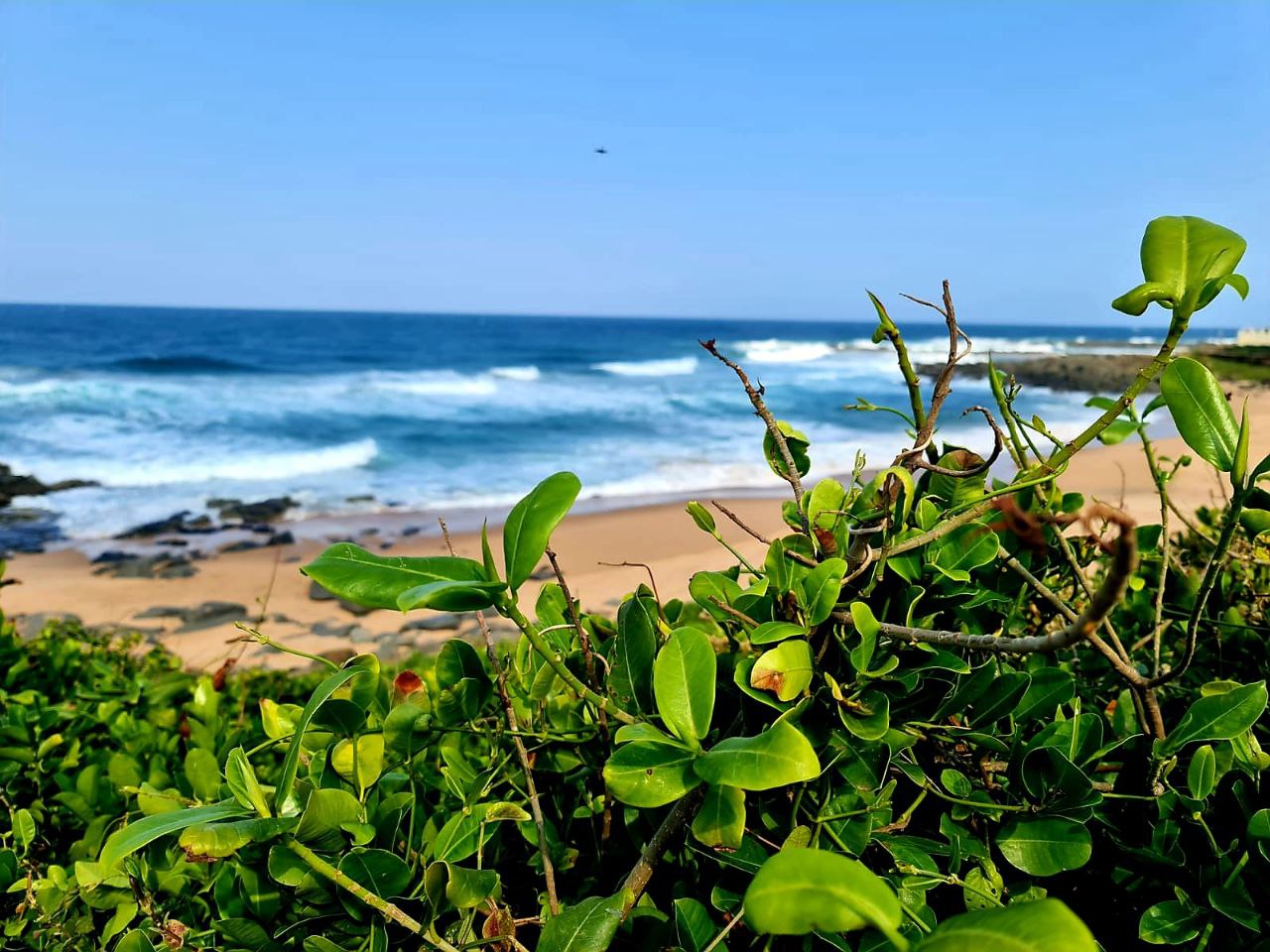Olga's story at Talentgrator: how to working remotely from South Africa
Olya Matasova, the Talentgrator team's ex recruiter, has now been moving from her usual lifestyle in Novorossiysk to the warm and cozy everyday life in Ballito, South Africa.
The reason for Olga's move was her South African husband, who was clear that he wanted to spend his life in his native land.
During our meetings at Zoom, Olga's fascinating stories of her working day without electricity and the exotic animals in her background became familiar to us, and we decided to do a big interview so that not only we but also our readers could learn about living and working remotely from South Africa.

- Olga, hi! Tell us the story of your move to South Africa, if it's not a secret.
Hey! No, it's absolutely no secret, my husband is a South African citizen (his ancestors are from Holland) after trying to build a life together in Russia he flatly refused to live there, so we moved to his home country.
Throughout our married life we visited his homeland regularly, practising life in Cape Town, but later opted for the warmer, windless climate of Ballito. I loved it here in spite of all the "buts" and soon it was unanimously decided to move with the ends. It is now six months since I have been here in Ballito on my wife's visa.
- What are the specific features of life there?
Let me start by saying that my stereotype from my youth, like most people's, was that South Africa was all Africa and moreover a poor country. Fortunately, this is far from true and my stereotype has been shattered). There are 64 countries in Africa and one of them is South Africa, which "stole" my heart 5 years ago when I first flew here.
Of the minuses, I would single out three main ones:
1. It is very insecure to live in (I mean crime rate), but if you follow certain safety rules, you will be safe and sound, just keep them in mind and follow them clearly. But that point didn't stop me either.
2. Fan blackouts because of corruption and lack of infrastructure maintenance on an adequate level. Those who have their own generators can do without it.
3. If you don't have health insurance and have to go to the hospital, you can get a bill for tens or even hundreds of thousands of dollars. Health insurance is very expensive, but it's worth it.
As for the pluses, there are so many, and I can talk about them endlessly because South Africa is an amazing country with terrific service.
Everyone can find entertainment to his or her liking: the magnificent nature, safari, wild animals, 2 oceans (Indian and Atlantic) with endless sandy beaches, surfing, diving with sharks, whales, dolphins, seals, and even penguins, amazing sunrises, and sunsets, The highest mountains, hiking, over 1,300 wineries, delicious food, seafood, variety of tropical fruits, golf, rugby, afro-dancing, Latin-dancing, fabulous roads, and very friendly people.
I could call Ballito a city for the soul. There is a mix of cultures, people speak 11 languages, and everyone can find something to do, or if not, just really enjoy life.
People really love living here. They don't rush and they focus on spending time with their family and their favorite things to do. They can even spend up to four hours cooking dinner and an equal amount of time enjoying it with their loved ones.

Ballito is a city for the soul. Being here, I feel like I'm watching Netflix with my own eyes!
- Have you managed to find your people in a new place? How big is the expat community in your city?
I live in Ballito, I have a few Russian girls here, there are about 50 families in the neighboring town of Durban and even more in Cape Town. The nice thing is that all Russians, Ukrainians, Belarusians, Moldovans, etc. are always ready to help each other, and we meet often.
We find each other in Whats App or Telegram groups, we can meet at various parties and hobby meetings. The cultural life here is not far behind, and you can always find parties for all tastes.
- What is the situation with jobs, education, kindergartens for Russian- or English-speaking expats?
For foreigners who have moved here permanently, work is very difficult to find.
As for education, as in any country, there are both public and private schools, but our family gives preference exclusively to private kindergarten and school, the level of which is very high (there are Cambridge-based schools in particular).
Getting a work visa to live in South Africa is not difficult, it requires an employment contract from an employer and a 4-month waiting period.
But finding a good job for an immigrant is not an easy task. The locals prefer to employ members of their own nation, so the immigrant's main business activity is entrepreneurship.
The conditions for setting up your own business are quite loyal, but one thing to keep in mind is that 50% of the employees must be local.
The country's economy and business activities include tourism (safari and hunting), high-class wineries, diamond and oil extraction, and farming.
- Olga, how much does it cost to live in South Africa? What income is needed for a comfortable standard of living?
Living here is very expensive, the service of various services (medicine, education, beauty salons, insurance, petrol, food, etc. are 3-6 times more expensive) when compared with Russia. As for income for a comfortable life, I find it difficult to answer. The country's economy has fallen very badly over the last 30 years, and unfortunately, the situation is not changing, so the cost of living is skyrocketing.

Basic costs per month:
- Payment of utilities
- Internet and mobile phone costs
- Petrol
- Kindergarten
- All insurances
- Weekly food shopping for a family of 3
= 4,000$
- Tell us the story of how you got into Talentgrator?
When I finally moved permanently to South Africa and started looking for work, despite my very decent experience of working in HR-Lead positions in global foreign companies, I realized that this is not Russia or Europe), no-one is particularly impressed by your employability with your knowledge background, since preference is given exclusively to the local population.
Marina Zapolskaya, who is the general manager of Talentgrator, invited me to join her team. I have known Marina for a long time, 17 years ago she interviewed me for the HR-Manager position at AES, after that she introduced me to the General Manager who made me an offer and Marina was also my HR-Manager for a year. And when I got the job offer from her, I thought: 'Why not? Maybe it's a sign. The gambling industry is going to be a new challenge for me, and I love challenges.
- You combine working from home with having a full-time household and caring for your child. Do you manage to stay effective under these conditions or do you have to make sacrifices?
I believe that working remotely has completely changed my life.
Working in an office from morning till late at night led to my two children's childhoods unfortunately passing me by. Many parents are consumed with work, spending 80% of their lives in offices, trying to build a career, make as much money as possible to provide for their children and give them the best of everything, while missing out on the most important thing in life - being there for their children and giving them enough time and attention that they so need. I would not want to make the same mistake of not maintaining a work-life balance with my third child.
In addition to this, my husband works as a diver on special orders. This means that he can be absent for 3-4 months at a time when he is away on a project. This is very hard physical work, after which a rest of 1-2 months is required. It is almost impossible to combine family life and devote enough time to our two-year-old daughter in such a regime. Working remotely is the only viable option for me at the moment.
- What has changed your attitude towards gambling?
While living in South Africa and traveling around Europe a lot, I looked at it with very different eyes. Here it is all completely legal and the locals, just like in European countries or the USA, treat it as a form of entertainment rather than a devil's trap.
Working at Talentgrator and interacting with clients and team members on a daily basis has helped me develop a healthy attitude towards the industry and understand that it is all about developing high-quality IT products and strong professionals in the first place.
- What is your favorite thing about your job?
It is very important for me to keep in touch with candidates even after the vacancy has closed. I feel responsible for the candidate, especially when it comes to relocation.
For example, we recently relocated a candidate from Kazakhstan to Kyiv, thus attracting him to change not only his job but also his permanent place of residence...
Do you see South Africa as a place where you want to stay, or is it just a temporary home and you have a few more spots on the map ahead of you?
I love saying "if you want to make God laugh, tell him your plans". Life is always unpredictable and sometimes you don't know what awaits you tomorrow, but overall I plan to stay here forever, Ballito is a paradise for me. My family and I are comfortable here and I can truly call and consider this place my home.
- Finally...what advice can you give to those who work completely remotely, have a big-time difference with their team, or other difficult working conditions?
For me personally, working from home is no means working in pajamas and bed.
You have to do exactly as much during the working day as you would do in the office, remote work should not be relaxing in fulfilling the company's goals and objectives.
If possible - arrange a comfortable office/office for yourself in the form of a spare room, if there is no such possibility, in any case, it is possible to make the tiniest corner of the flat very cozy for work, if only you wish.
When it comes to working with your team, clients, and candidates, there should be mutual respect in scheduling meetings in the first place: take time differences into account.
And it is very important to start the day in a positive mood, and ways of achieving it are different for everyone, in my case, it is definitely the gym and literally 30 minutes of recharging in the sun at the ocean!
